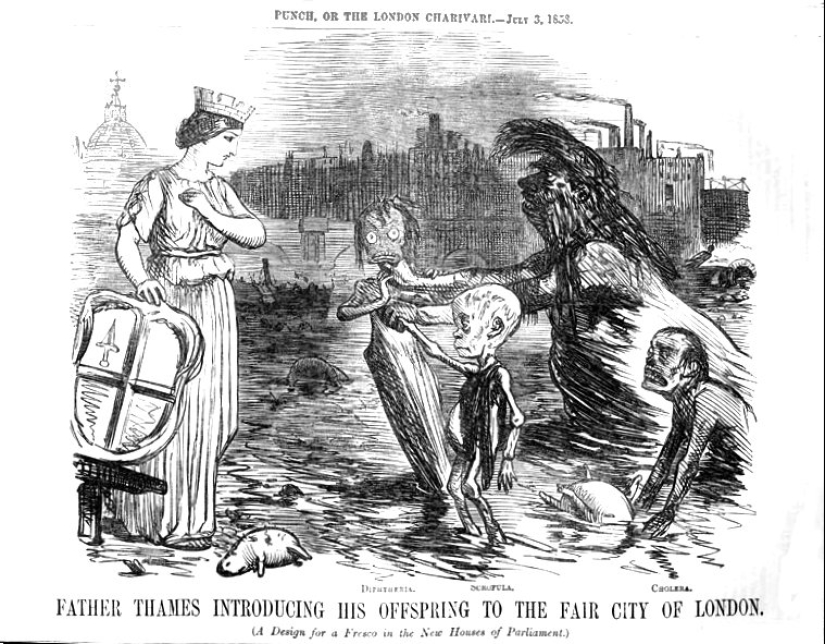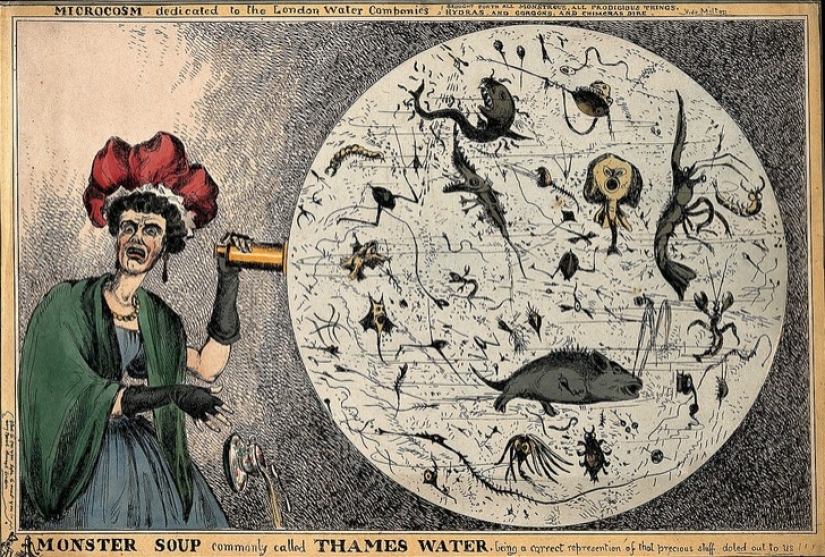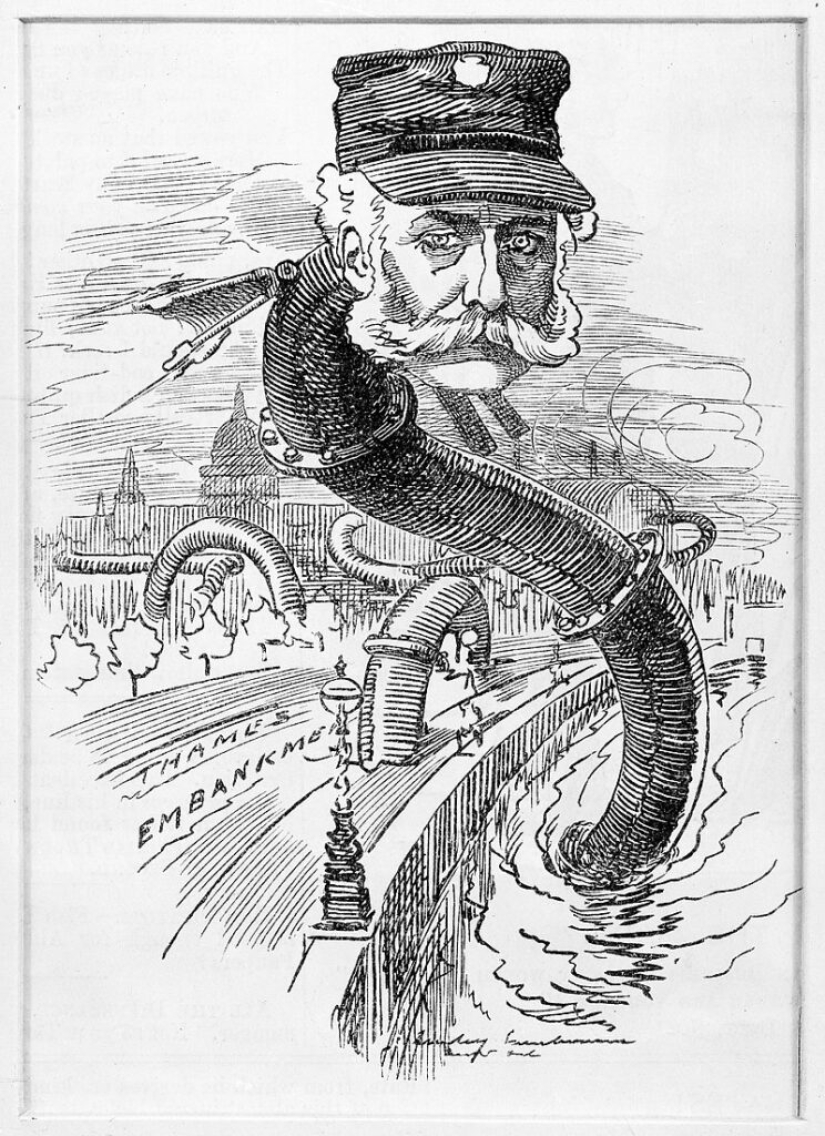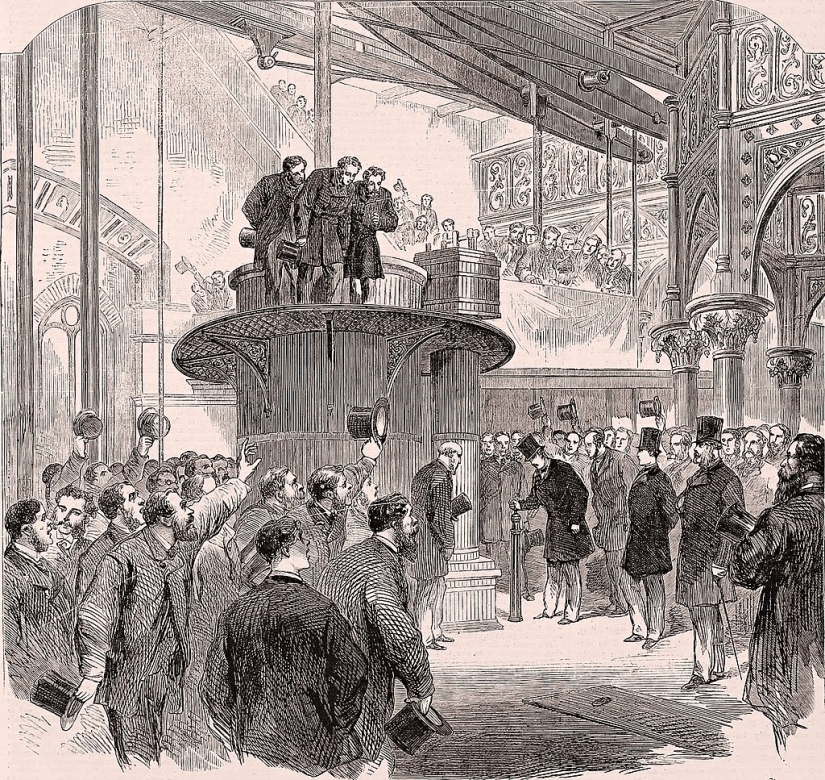The "great stench" in London: how the environmental disaster of the 19th century gave impetus to progress
Categories: Europe | History | Technology
By Pictolic https://pictolic.com/article/the-great-stench-in-london-how-the-environmental-disaster-of-the-19th-century-gave-impetus-to-progress.htmlIn the 19th century, London became the universally recognized world center of science and technology. At the same time, the capital of Britain had one unpleasant feature that made it related to cities located in the colonies. The lack of a centralized sewage system poisoned the life of the residents and upset the guests. The splendid architecture, the gleaming carriages and the well-dressed dandies contrasted sharply with the unbearable stench from which there was no escape. The main source of miasma was the Thames, which served as a sewer for centuries.

For centuries, the kingdom's main waterway served as a waste disposal site. Liquid and solid household waste, fecal water and industrial effluents were dumped into the Thames. Of course, the river did not ionize the air and has always been a source of disgusting stench and a breeding ground for infections. The Thames had long since lost its fish and beasts, but a wide variety of bacteria and parasites swam in abundance.

But in the summer of 1858 the situation became simply unbearable. Abnormal heat caused strong evaporation and a drop in the water level in the Thames. Under the scorching sun, the river began to emit such a stench that only the most persistent could dare to take a walk along the embankment. To protect themselves from the stench, the British Parliament even soaked curtains with bleach. But this did not help, and the authorities seriously considered moving to another place, remote from the river.

Fortunately, the parliamentarians realized that they should not run away from the problem, but solve it. It wasn't just the smell. The river became a source of epidemics that literally mowed down the townspeople. It is also worth mentioning that in the 19th century people seriously believed that cholera, plague or typhoid could be contracted by inhaling spoiled air.
Shortly before this, in 1854, epidemiologist John Snow was investigating the causes of a cholera epidemic in the London Borough of Soho. He found out that a single water pump on Broad Street was the source of the infection. It was next to a damaged sewer, and clean water mixed with contaminated water. Snow got it shut down, and the outbreak was brought to a halt.
But it was a local success. Diseases continued to overcome the Londoners and they sinned not on the water, but on the river miasma. To save the capital, in a record 18 days, officials agreed on the issue of financing and building a new city sewer. Several engineers submitted their projects to the competition. City officials favored the proposal of engineer Joseph Bazalgette.

Bazalgett proposed to organize wastewater and divert it outside the city. He was going to accomplish this task by gravity lines and pipelines filled with steam pumps. The engineer's project involved using the natural terrain to create the necessary slopes for the drains at no additional cost.
But the project still turned out to be expensive and difficult to implement. The London sewer was modernized for a long 17 years. During the construction process, engineers encountered unforeseen problems for which they had to look for original solutions.

But the money and effort spent was worth it - the brainchild of Joseph Bazalgette perfectly coped with its task. The Thames cleared and the infectious disease curve crept down. The sewer system, created in the Victorian era, proved to be so effective that it was not changed until the 50s of the 20th century. Many believe that Bazalgette saved more lives with his idea than all the doctors in London.
Recent articles

It's high time to admit that this whole hipster idea has gone too far. The concept has become so popular that even restaurants have ...

There is a perception that people only use 10% of their brain potential. But the heroes of our review, apparently, found a way to ...

New Year's is a time to surprise and delight loved ones not only with gifts but also with a unique presentation of the holiday ...